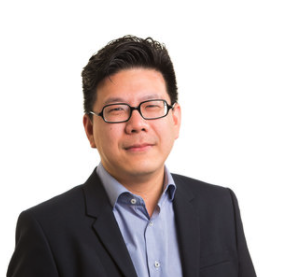
Dr Ben Teh
A two-dose influenza vaccine schedule given early after allogeneic haematopoietic stem cell transplant (HSCT) offers good protection for adult patients, an Australian study has shown.
High seroprotection rates against all influenza strains were achieved when two doses of standard quadrivalent vaccine were given early post-auto HSCT, according to results from a randomised trial led by Dr Benjamin Teh and colleagues at the Peter Mac Cancer Institute in Melbourne.
Presenting the trial data at EHA25, Dr Teh also showed that a schedule of a trivalent high dose vaccine followed by a standard vaccine achieved slightly higher titres compared to the standard dose vaccine schedule.
The findings come from a randomised single-blind control trial of two influenza vaccination schedules that enrolled 68 patients (average age 61 years) at the Peter Mac Centre during the Southern Hemisphere 2019 influenza season. The patients were mostly male and the most common condition was myeloma.
Patients were randomised to trivalent high dose followed by quadrivalent standard dose (SD) vaccine 4 weeks later or two standard quadrivalent vaccines four weeks weeks apart. The vaccine were given at between two to four months after transplant
For the main outcomes of seroprotection (haemagglutinin titre ≥40) and seroconversion (4-fold titre rise) rates, at one and two months following vaccination.
For the high dose and standard dose schedule the percentage of patients achieving seroprotection was 78.8% and 79.4% for H1N1, 87.9% and 91.2% for H3N2 and 81.8% and 94.1% for influenza-B/Yamagata respectively.
Seroconversion rates and titre ratios were similar across influenza strains and time periods except for a higher H3N2 geometric mean titres ratio at one month following high dose compared to standard dose vaccination (5.96 vs. 3.61, p=0.047).
There was no difference in the number of patient-reported episodes of influenza-like illness or laboratory proven influenza between arms.
Dr Teh said the findings should provide some clarity about the vaccination advice for patients undergoing autologous HSCT, as until now there has been inconsistency in guidance on the number and timing of vaccines. Some guidelines recommend patients receive one of two vaccines 4-6 months post transplant while others suggest vaccination six months after transplant , he noted.
“Hopefully this provides some supportive evidence that you can vaccinate early – ie two to four months post-transplant and provides confidence that clinicians don’t have to wait to six months,” he said
“It also shows that high rates of seroconversion can be achieved with two doses regardless of the type of vaccine used,” he said.
However Dr Teh said it was not clear whether the results could be extrapolated to vaccination beyond one year post transplant or to other haematology patients.
“A common question we get is whether patients should have two doses if they are receiving immunomodulatory therapy and that is something we will explore in further research,” he said.